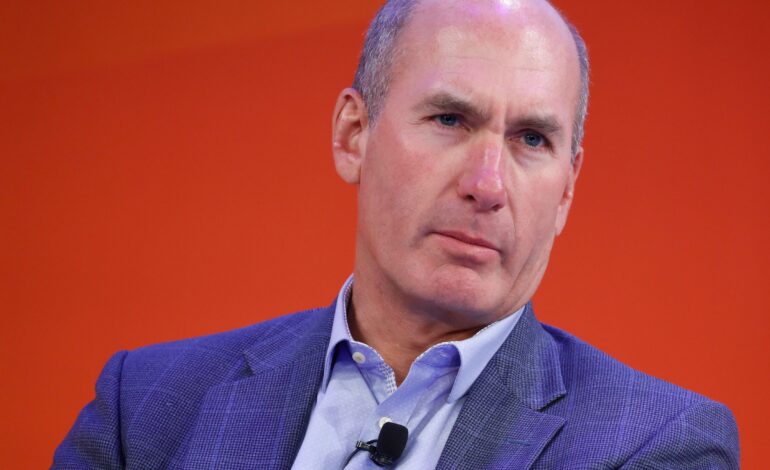AT&T CEO’s Urgent Memo Signals Major Shift in Corporate Culture

UPDATE: AT&T CEO John Stankey has issued a sweeping 2,500-word memo to managers, calling for a dramatic shift in the company’s corporate culture. This urgent message, delivered on Friday, directly addresses the expectations for the future of AT&T’s 140,000 employees amidst widespread changes in corporate America.
Stankey’s memo emphasizes a no-nonsense approach to adapting to a fast-evolving workplace. “Commit to adjusting your own behaviors,” he stated, highlighting that the era of softening corporate messaging is over. This transformation comes roughly seven months after a strict return-to-office mandate was implemented, signaling a long-term cultural evolution within the company.
As corporate leaders across the nation adopt similar strategies, Stankey’s direct tone reflects a critical shift in how executives are communicating. In the memo, he clarifies, “If a self-directed, virtual, or hybrid work schedule is essential for you to manage your career aspirations and life challenges, you will have a difficult time aligning your priorities with those of the company and the culture we aim to establish.”
Why This Matters NOW: Stankey’s call for change is not just about AT&T; it mirrors broader trends in corporate culture where performance takes precedence over loyalty and tenure. The memo signals that companies are moving towards more competitive, results-driven environments.
Significantly, AT&T is shifting away from a culture that has long valued loyalty and familial ties. Stankey openly stated, “This shift can be characterized as moving away from an orientation on hierarchy towards a more externally focused, competitive market-based culture.” This mirrors sentiments from other major companies; for instance, Amazon CEO Andy Jassy recently warned employees about the consequences of not embracing office culture, indicating a hardline stance on in-person work.
Stankey has made it clear that performance metrics will be the new benchmarks for employee longevity at AT&T. He urged staff to adapt quickly, citing General Eric Shinseki’s powerful reminder, “If you dislike change, you’re going to dislike irrelevance even more.”
In a move towards data-driven evaluations, managers will now utilize various performance metrics, including peer feedback and behavioral patterns, to assess employee contributions. Stankey stated, “This allows leaders to identify behaviors that are obvious outliers,” ensuring accountability across the board.
The emphasis on collaboration is also a key theme in Stankey’s memo. He explained that “efforts that require inter-departmental collaboration and coordination” necessitate employees working together in person. This belief is echoed by other industry leaders, such as Starbucks CEO Brian Niccol, who emphasized the importance of in-office work for enhancing creativity and problem-solving.
However, the push for a return to the office has not been without challenges. Employees have voiced concerns over logistical issues such as a lack of desks and parking shortages. Stankey acknowledged these problems, stating, “You deserve tools, processes, and capabilities that help you serve our customers effectively.” This recognition of employee frustrations highlights the precarious balance leaders must strike in implementing such sweeping changes.
What’s Next: As AT&T embarks on this new direction, industry watchers will be keen to see how the company’s changes impact employee satisfaction and performance. The urgency in Stankey’s message sets a precedent for other corporations grappling with similar cultural transformations.
With corporate America facing a reckoning over workplace dynamics, Stankey’s memo serves as a wake-up call for all organizations to reassess their cultural priorities and employee engagement strategies. The implications of these changes could reshape the corporate landscape in the coming months, making this a crucial moment for both employees and leadership across industries.






